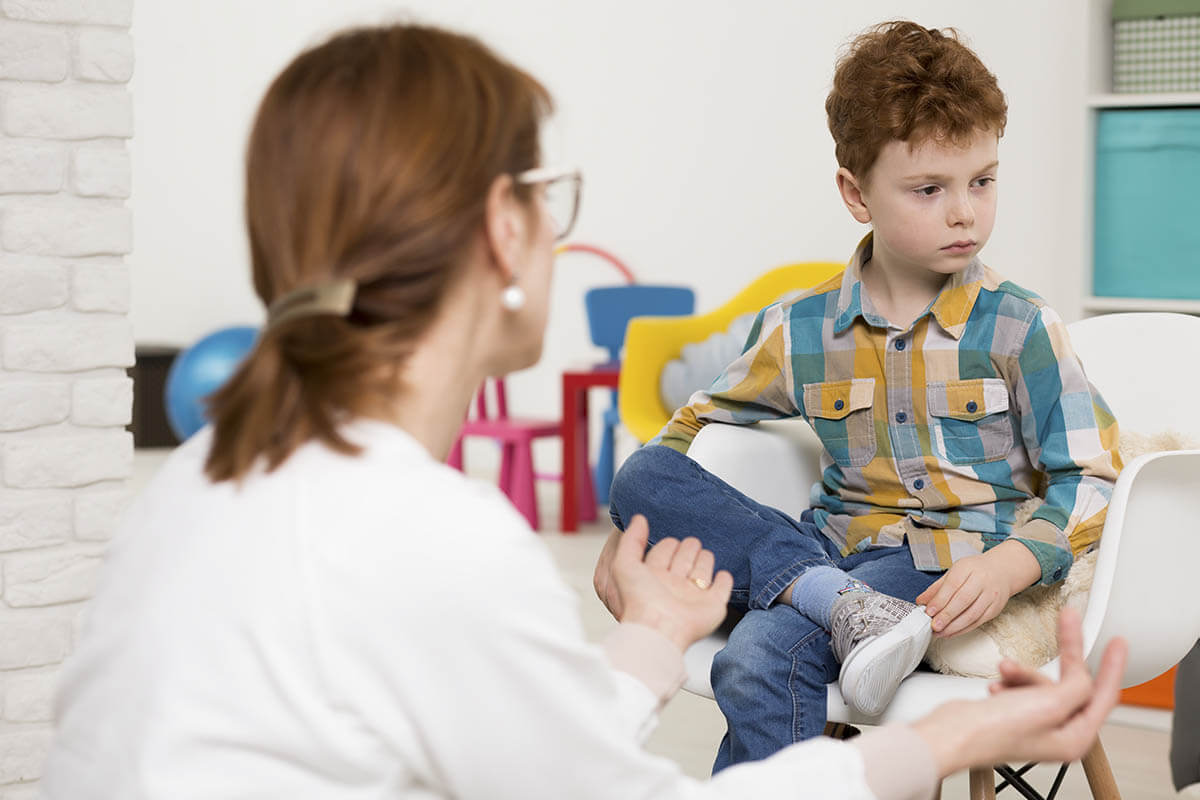Being non-verbal among children with autism is fairly common – research shows that about one third are nonverbal, meaning that they speak no more than a few words. There are several reasons for this, and depending on their background, some children can learn to talk with interventions at an autism treatment center. In this article, we provide the answer to the question, “What is non-verbal autism?”. You will learn the signs, how it is diagnosed, and what to do after diagnosis.
What is Non-Verbal Autism?
To know whether your child has non-verbal autism, the first step is to determine whether they can speak without interference. Many people with autism may struggle to hold two-sided conversations, but they are not considered non-verbal. Only those that do not speak at all are so-called.
Children on the autism spectrum may also lose their ability to speak should their symptoms get worse as they grow older. Common variations of speech disruptions related to autism include apraxia and echolalia. In apraxia, people cannot say what they want to say, and in echolalia, they tend to repeat words and phrases. Both of these hinder clear communication.
Non-verbal autism may also be accompanied by the following developmental, behavioral, sensory, and social symptoms:
- Developmental – autistic people are unique and will develop differently. Some children experience typical development in infanthood and then lag behind around age 2-3. This can also happen for speech development.
- Behavioral – persons with autism prefer strict adherence to routines, and changes or disruptions may upset them. They usually have very specific interests or even obsessions with certain activities. They may have short attention spans, which affects clear communication.
- Social – persons with autism often have difficulties with social interactions. Some may avoid eye contact or not respond to their names. Unclear communication makes it harder for them to make friends and can lead to feelings of isolation and even depression.
- Sensory – Better language development improves sensory hyper-responsiveness, meaning that non-verbal children with ASD may have extreme hyper- or hypo-responsiveness. The inability to communicate disturbances from environmental factors may further aggravate them.
- Not all persons will show the same symptoms, which means every child should have their assessment and specialized autism spectrum disorder treatment. These programs have tailored speech therapy for autism treatment. They can help nonverbal children start speaking.
How to Diagnose Non-Verbal Autism
Having answered the question, “What is non-verbal autism?” you should know how it is diagnosed. Instead of a single diagnostic test, each child goes through several phases of tests to determine whether they have non-verbal autism. For children, their pediatrician will be the first to assess the child for Autism Spectrum Disorder (ASD). He/she also request tests to rule out possible causes for the symptoms the child has.
When ASD is confirmed, the pediatrician will refer you and your child to a specialist who evaluates your medical histories (child and parents). These tests include the Childhood Autism Rating Scale Third Edition (GARS-3) and Autism Diagnostic Observation Schedule, Second Edition (ADOS-2), that help them to verify a non-verbal autism diagnosis.
What Happens After Diagnosis?
Once a diagnosis has been given, the specialist likely recommends early intervention for autism treatment programs. Given that most parents notice issues before the child’s first or second birthday, early treatment offers parents more significant control of their child’s outcomes. The support from an education program for children with autism helps provide individualized assistance as the child grows.
Even though there is no cure yet, these therapies can help the child learn how to communicate, which makes their care more manageable. It is worth noting that communication for non-verbal autism may not necessarily be through the spoken word. Many non-verbal persons with autism go-ahead to live comfortably with assistance and continuous therapies.
Get Help for Non-Verbal Autism
As mentioned, every person with autism is different, and not all interventions will work the same way. Once you know, “What is non-verbal autism”, you should seek help as soon as you notice issues with your child’s development. For many parents, this will be between the first and third years of the child’s life. Based on your child’s unique symptoms, the specialist will craft a treatment and therapy program that best suits their unique needs.






